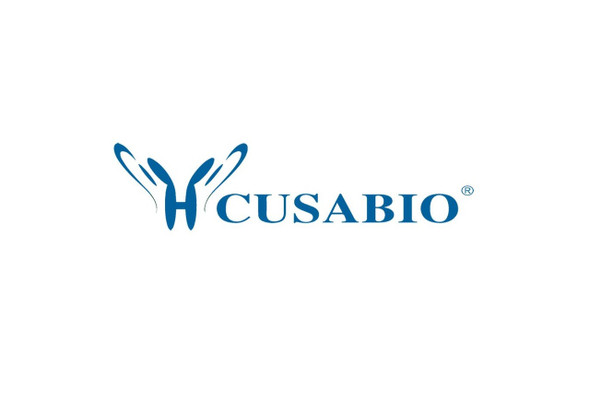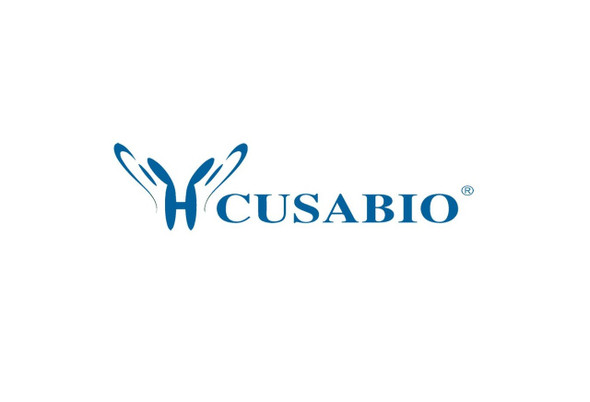Cusabio Mouse Recombinants
Recombinant Mouse Frataxin, mitochondrial (Fxn) | CSB-YP009086MO
- SKU:
- CSB-YP009086MO
- Availability:
- 3 - 7 Working Days
Description
Recombinant Mouse Frataxin, mitochondrial (Fxn) | CSB-YP009086MO | Cusabio
Alternative Name(s): Fxn; FrdaFrataxin; mitochondrial; Fxn; EC 1.16.3.1) [Cleaved into: Frataxin intermediate form; Frataxin mature form]
Gene Names: Fxn
Research Areas: Others
Organism: Mus musculus (Mouse)
AA Sequence: LGTLDNPSSLDETAYERLAEETLDSLAEFFEDLADKPYTLEDYDVSFGDGVLTIKLGGDLGTYVINKQTPNKQIWLSSPSSGPKRYDWTGKNWVYSHDGVSLHELLARELTKALNTKLDLSSLAYSGKGT
Source: Yeast
Tag Info: N-terminal 6xHis-tagged
Expression Region: 78-207aa
Sequence Info: Full Length of Mature Protein
MW: 16.4 kDa
Purity: Greater than 90% as determined by SDS-PAGE.
Relevance: Promotes the biosynthesis of he and assbly and repair of iron-sulfur clusters by delivering Fe2+ to proteins involved in these pathways. May play a role in the protection against iron-catalyzed oxidative stress through its ability to catalyze the oxidation of Fe2+ to Fe3+; the oligomeric form but not the monomeric form has in vitro ferroxidase activity. May be able to store large amounts of iron in the form of a ferrihydrite mineral by oligomerization. Modulates the RNA-binding activity of ACO1 .
Reference: Studies of human, mouse and yeast homologues indicate a mitochondrial function for frataxin.Koutnikova H., Campuzano V., Foury F., Dolle P., Cazzalini O., Koenig M.Nat. Genet. 16:345-351(1997)
Storage: The shelf life is related to many factors, storage state, buffer ingredients, storage temperature and the stability of the protein itself. Generally, the shelf life of liquid form is 6 months at -20?/-80?. The shelf life of lyophilized form is 12 months at -20?/-80?.
Notes: Repeated freezing and thawing is not recommended. Store working aliquots at 4? for up to one week.
Function: Promotes the biosynthesis of heme and assembly and repair of iron-sulfur clusters by delivering Fe(2+) to proteins involved in these pathways. May play a role in the protection against iron-catalyzed oxidative stress through its ability to catalyze the oxidation of Fe(2+) to Fe(3+); the oligomeric form but not the monomeric form has in vitro ferroxidase activity. May be able to store large amounts of iron in the form of a ferrihydrite mineral by oligomerization. Modulates the RNA-binding activity of ACO1 (By similarity).
Involvement in disease:
Subcellular Location: Cytoplasm, cytosol, Mitochondrion
Protein Families: Frataxin family
Tissue Specificity: Heart, liver, skeletal muscle, kidney, spleen and thymus. Weakly expressed in the brain and lung.
Paythway:
Form: Liquid or Lyophilized powder
Buffer: If the delivery form is liquid, the default storage buffer is Tris/PBS-based buffer, 5%-50% glycerol. If the delivery form is lyophilized powder, the buffer before lyophilization is Tris/PBS-based buffer, 6% Trehalose, pH 8.0.
Reconstitution: We recommend that this vial be briefly centrifuged prior to opening to bring the contents to the bottom. Please reconstitute protein in deionized sterile water to a concentration of 0.1-1.0 mg/mL.We recommend to add 5-50% of glycerol (final concentration) and aliquot for long-term storage at -20?/-80?. Our default final concentration of glycerol is 50%. Customers could use it as reference.
Uniprot ID: O35943
HGNC Database Link: N/A
UniGene Database Link: UniGene
KEGG Database Link: KEGG
STRING Database Link: STRING
OMIM Database Link: N/A









